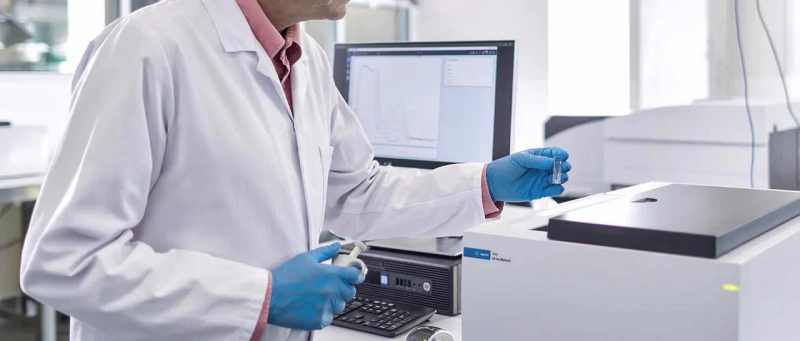Science keeps moving forward because of the tools that make discoveries possible. Molecular spectroscopy instruments let you see how molecules react to light, how they bond, and how they behave. Once you know how these instruments work and why they matter, you’ll see how much they push science. This article will share how molecular spectroscopy enables unlocking scientific discoveries.
What Molecular Spectroscopy Means
When light encounters a material, molecules in its interior respond depending on their structure and upon their energy. These responses establish patterns, known as “spectra,” that reveal what the substance is made of. With spectroscopy instruments, those patterns become hard data about composition and chemical behaviour. It’s the basis of discoveries that transform the world you live in.
Accuracy That Changes the Game

Where typical chemical tests tend to provide rough and general answers, spectroscopy gets right down to the details. Before a new compound can be tested in people, scientists must first know how it behaves on a molecular level. Without this granularity, the research would go more slowly and the risks would be greater. Spectroscopy narrows the uncertainty and helps researchers move forward with confidence.
How Medicine Benefits
Infrared and Raman spectroscopy reveal biomarkers linked to specific conditions, which means doctors can diagnose without relying on invasive procedures. Pharmaceutical labs also depend on spectroscopy to make sure that the medications are pure, effective, and safe before reaching patients. Together, early detection and strict quality checks show why spectroscopy is a pillar of modern healthcare.
Protecting the Environment
Spectroscopy also enables scientists to detect air, water, and soil pollutants with extreme sensitivity. Faster than older techniques that are slow, spectroscopy is fast and reliable, even at low concentrations. That data is then employed by governments and institutions in policies to protect communities and ecosystems – proof that spectroscopy is part of solutions to global problems.
Looking Beyond Earth
Spacecraft and telescopes utilise such chemistry to probe the gargantuan quantities of chemical compounds that make up planets or even galaxies. By studying the light reflected off these super-Earths, scientists can determine what is in their atmospheres. Additionally, spectroscopy is what joins what happens here on Earth with what happens out in the galaxies that are far removed.
Everyday Industries You Rely On
Spectroscopy isn’t confined to research labs; it also turns up in industries you encounter all day, every day. For example, in agriculture, it checks soil quality and tracks crop health. In materials science, it is used to test metals or coatings to the point that they must conform to industry standards. These practical uses are a helpful reminder that spectroscopy isn’t some theoretical plaything.
Technology Makes It Even Better
Today’s instruments are faster, user-friendly, and capable of analysing challenging samples without much preparation. A test that can be taken out of the lab means tests can happen in the field, like on a farm or at an industrial site. With those advances comes the potential for spectroscopy to no longer be the exclusive purview of experts and instead to be a practical tool across disciplines.
Building Knowledge Together
Researchers around the world share this information, which speeds up progress and sparks new ideas. This global collaboration has already led to breakthroughs in renewable energy, advanced treatments in medicine, and cleaner technologies for the future. Always remember that as spectroscopy instruments continue to evolve, the potential to solve larger and more complex problems only grows.
The Power Hidden in the Light of Molecular Spectroscopy Instruments
From diagnosing diseases early to finding ways to understand the nature of other planets, spectroscopy provides the answers science requires. By making invisible molecular reactions visible in clear and useful data, these instruments are a key to discoveries that advance the course of the future. What’s more, if you are concerned about where science is going, spectroscopy is one of the tools leading the way.
Post Comment
Be the first to post comment!





